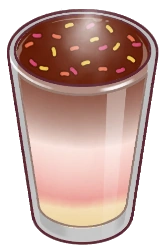Coffee is more than just a morning ritual—it’s a global obsession. Whether you like it bold and black or sweet and creamy, one common question coffee lovers often ask is: “Does sugar make coffee stronger?” Others wonder: “Which coffee has the most sugar?” In this article, we’ll explore how sugar interacts with coffee, debunk some myths, and break down the sugar content in popular coffee beverages. Let’s dive in.
Does Sugar Make Coffee Stronger?
The short answer is: No, sugar does not make coffee stronger in terms of caffeine or flavor intensity.
Let’s explore why.
Understanding Coffee Strength
In the world of coffee, “strength” typically refers to either:
-
Caffeine content (how much stimulant the drink contains), or
-
Brew strength, meaning the ratio of coffee solids dissolved in water—often perceived as flavor intensity.
Sugar does not increase either of these. When you add sugar to coffee, it affects:
-
Sweetness: Sugar masks bitterness, making the coffee taste smoother.
-
Perception of flavor: Sugar can enhance some notes (like fruit or caramel) but doesn’t actually intensify the coffee itself.
According to National Coffee Association USA, brew strength is determined by grind size, water temperature, and extraction time—not additives like sugar.
Myth-Busting: Why People Think Sugar Adds Strength
Many believe sugar makes coffee stronger because the drink becomes more satisfying or palatable. A super-sweet coffee can feel more “impactful,” especially when paired with cream or flavor syrups. But this is a subjective sensation—not an actual increase in caffeine or flavor concentration.
How Sugar Affects the Coffee Experience
Although sugar doesn’t boost caffeine or strength, it dramatically changes your coffee experience. Here’s how:
-
Balances Acidity: Sugar tones down acidic notes, making light roasts more approachable.
-
Reduces Bitterness: It masks bitter compounds from dark roasts or over-extraction.
-
Amplifies Flavor Profiles: Sweetness can bring out hidden flavors in fruity or chocolatey beans.
That’s why most specialty coffee shops offer minimal sugar—so the origin characteristics of the bean shine through naturally.
Is There a Better Alternative to Sugar in Coffee?
If you’re seeking sweetness without overloading on sugar, consider:
-
Stevia or monk fruit (zero calories, plant-based)
-
Honey or maple syrup (natural but caloric)
-
Coconut sugar (lower glycemic index)
Each of these options affects coffee flavor differently, and some may even add unique tasting notes.
Pro Tip: Try adding a pinch of salt to reduce bitterness instead of sugar—it’s a barista secret!
Which Coffee Has the Most Sugar?
If you’re watching your sugar intake, it’s important to know which coffee drinks are packed with sweetness. Here’s a breakdown of popular coffee beverages and how much sugar they contain:
| Coffee Drink | Approx. Sugar Content (per 16 oz) |
|---|---|
| Black Coffee (no sugar) | 0 g |
| Cappuccino (with no sweetener) | 0-4 g |
| Mocha (with whipped cream) | 25-35 g |
| Frappuccino (Starbucks) | 40-70 g |
| Flavored Iced Coffee (store-bought) | 30-60 g |
| Instant 3-in-1 Coffee Sachets | 12-20 g |
| Vietnamese Iced Coffee (with condensed milk) | 20-30 g |
Most Sugary Offenders: Frappuccinos & Ready-to-Drink Coffees
Among all options, frappuccinos and bottled iced coffees tend to contain the most sugar. According to Starbucks Nutrition Info, a 16 oz Mocha Frappuccino contains up to 61g of sugar, which is more than double the daily recommended sugar intake for adults.
The American Heart Association recommends no more than 36g/day (men) and 25g/day (women) of added sugar.
Top 5 Sugary Coffee Drinks to Watch Out For
-
Caramel Frappuccino: A dessert in a cup, often over 55g of sugar.
-
Vanilla Latte with Syrup: Can range from 25-40g, depending on customization.
-
Dalgona Coffee with Sugar: Homemade trend, but typically high in whipped sugar.
-
Bottled Cold Brews (sweetened): Vary by brand—always check labels.
-
Instant Coffee Mixes: The popular “3-in-1” format is convenient but loaded with sugar.
Health Impact of High-Sugar Coffee Drinks
Drinking high-sugar coffee regularly can lead to:
-
Weight gain
-
Blood sugar spikes
-
Increased risk of Type 2 diabetes
-
Tooth decay
-
Energy crashes
If you’re drinking coffee for mental alertness, sugar crashes may cancel out the benefits of caffeine. It’s better to enjoy a cleaner brew with limited or no sugar to maximize focus and endurance.
Tips for Reducing Sugar in Your Coffee
If you’re trying to cut back on sugar, here are some helpful strategies:
-
Gradually reduce sugar – Drop ½ tsp per week until you get used to lower sweetness.
-
Choose natural sweeteners – Like cinnamon or cocoa powder for flavor without sugar.
-
Use unsweetened milk – Avoid sweetened plant milks which add sugar.
-
Ask for half-syrup at coffee shops – Baristas can adjust sweetness levels on request.
-
Make coffee at home – You control every ingredient and can avoid hidden sugars.
Conclusion: Does Sugar Make Coffee Stronger?
Sugar does not make coffee stronger in any scientific sense. It doesn’t increase caffeine levels or brew concentration. What it does is modify taste, often making coffee feel more palatable or “bold” due to sweetness.
And when it comes to which coffee has the most sugar, the answer lies in flavored, ready-to-drink, or blended beverages—especially those from large chains or bottled brands.
If you’re serious about coffee, it’s worth exploring its natural flavors with little or no sugar. That way, you can appreciate the roast profile, bean origin, and brewing technique without unnecessary additives.

